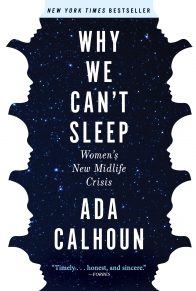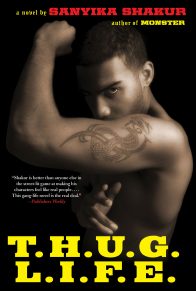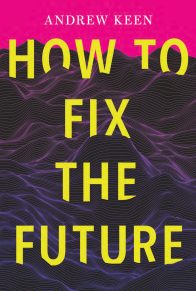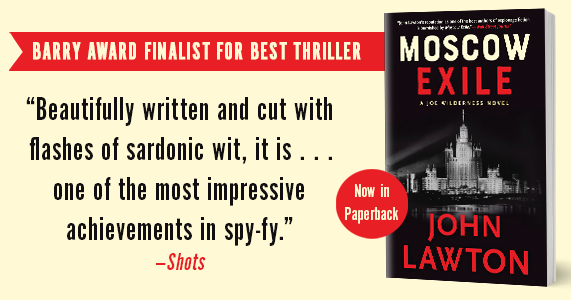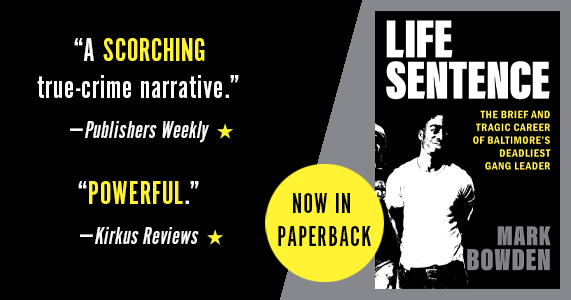(STAGE HAS A MINIMAL LOOK. IT IS DIVIDED INTO TWO HALVES. THE LEFT IS THE WRITER’s SPACE AND IS DIMLY LIT. IT HAS A MUSIC STAND WITH MAKEUP, COSTUMES, HATS. THE RIGHT SIDE IS PAINTED WHITE, RESEMBLING A WHITE CUBE. THERE IS A MIKE AND MIKE STAND AND A CHAIR THAT GETS PLACED THERE DEPENDING ON THE SCENE.
Years ago when I wasn’t yet American I had a green card. On my first trip abroad the customs official stamped on my papers ‘stateless.”
When I became a citizen, I had to throw my green card into a bin along with everybody else’s green cards. I didn’t want to. I was born on an island. I came here when I was seven. I didn’t like it here at first. Everything was so different. I had to change. Acquire a taste for peanut butter and jelly. It was hard. I liked tuna fish and jelly.
I used to play a game in bed. About remembering. I would lie awake in my bed before going to sleep and remember. I’d remember the way to my best friend’s house. I’d start at the front door of my house, cross the porch. Jump off three steps onto the sidewalk. The first house on the right looked just like my house, except it had only one balcony. The third house was great. You couldn’t see it. It was hidden by a wall and trees and shrubs. Whenever I’d look in, the German shepherd sniffed me and barked me out of his turf. I’d continue walking, crossing three streets, walking two blocks until I came to my best friend’s house. I did this repeatedly so I wouldn’t forget. I would remember. But then one day I forgot to remember. I don’t know what happened. Some time passed and I couldn’t remember the third block, then the second. Now I can only walk to the third house. I’ve forgotten.
I had a dream when I was a kid. (SOUND OF FOOTSTEPS RUNNING ON TAPE) I guess because we were refugees. Me and my cousin were fugitives running away from the police. We had to escape. We were running through the streets. We saw a manhole cover and it opened up. (SOUND OF METAL DOOR SHUTTING) We went down. We were in a sewer. (SOUND OF DRIPPING WATER, ECHO) We were safe. But it started to get hot. Stifling hot. And as it happens in dreams one minute my cousin was my cousin and the next she was a peanut-butter-and-jelly sandwich. The heat was making her melt. I held her in my hands. She was oozing down. I was crying: Don’t melt, Pat. Please don’t melt. I woke up in a sweat. (ALARM CLOCK)
In the morning I went to school. Our Lady Queen of Martyrs. That’s when it happened. In the lunchroom. I never drank my milk. I always threw it out. Except this time when I went to throw it out, the container fell and the milk spilled on the floor. The nun came over. Looked at me and the milk. Her beady eyes screamed: You didn’t drink your milk, grade-A pasteurized, homogenized, you Cuban refugee.
After that day I changed. I knew from my science class that all senses acted together. If I took off my glasses, I couldn’t hear as well. Same thing happened with my taste buds. If I closed my eyes and held my breath I could suppress a lot of the flavor I didn’t like. This is how I learned to drink milk. It was my resolve to embrace America as I chewed on my peanut-butter-and-jelly sandwich and gulped down my milk. This new milk that had replaced the sweet condensed milk of Cuba. My amnesia had begun.
(PINGALITO, A CIGAR-CHOMPING CUBAN MAN, ENTERS AS A TAPE OF MAMBO MUSIC PLAYS. HE GREETS THE AUDIENCE. HE IS ON THE CUBE AND BRIGHTLY LIT.)
PINGALITO
Welcome, ladies and gentlemen, to the show de jour, Milk of Amnesia. I am your host, Pingalito Betancourt, the Cuban Antonio Banderas. For those of you who are from Cuba, you may recognize my face. I was the conductor in 1955 of the M15 bus route, the route that go from La Habana Vieja to El Vedado. And it was in that bus that I meet Carmelita. There is a Streetcar Named Desire for Stanley Kowalski. For Pingalito this was Destiny on the M15 bus route.
When I heard of Carmelita’s tragic accident I rush right over, hoping a familiar face can trigger something in her deep recessed cavities of her cerebro, cerebellum, and medulla oblongata. You see people, the doctors have their methodologies for curing amnesia, and I have mine.
I make my way through the hospital corridors, saying hello to all the nice Filipino nurses, and I enter her room. She is asleep, looking like an angel, mouth open, pillow wet, making puttering sounds of a car engine. And I think of a childhood memory she used to tell me about. Her grandfather, who smoke a cigar, would take her for a drive in his Chevrolet, driving with a foot on the brake, stopping and starting, stopping and starting, stopping and starting. She would get so carsick. So I decide to simulate this memory. By blowing smoke in her face, playing with the controls of the hospital bed, making the legs go up, the head go down, up and down, up and down. I am playing her like a big accordion when a doctor comes in and says I gotta go. Something about my cigar and an oxygen tank.
But I don’t give up. I return the next day. I think, What above all is Carmelita? I tell you. Cuban. One hundred fifty percent. So I decide to tell her some facts about Cuba. See if it jiggles something. (SHOWING TO AUDIENCE A MAP OF CUBA) I have here audio-visual aid number one, a placemat I pick up in Las Lilas restaurant of Miami titled “Facts about Cuba.” Ladies and gentlemen, upon further examination of this placemat, you can see that the island of Cuba is shaped like a Hoover vacuum cleaner with Pinar del Rio as the handle. How many of you know Cuba is known as the Pearl of the Antilles because of its natural wealth and beauty? And the first thing we learn as little children is that when Christopher Columbus landed in our island, kneeling down, he said: “Est” es la tierra m’s hermosa que ojos humanos han visto.” This is the most beautiful land that human eyes have seen. The majestic mountains of la Sierra Maestra. Our mountains, not too tall. We don’t need high. If we get high, we get snow, then we gotta buy winter coat. And the beaches of Varadero. But, ladies and gentlemen, none can compare with the beauty of the human landscape. Oye me mano. Esas coristas de Tropicana. With the big breasts, thick legs. In Cuba we call girls carros and we mean your big American cars. Your Cadillac, not Toyota or Honda. Like the dancer Tongolele. I swear to you people, or my name is not Pingalito Betancourt, you could put a tray of daiquiris on Tongolele’s behind and she could walk across the floor without spilling a single drop. That, ladies and gentlemen, is landscape. For that you give me a gun and I fight for that landscape. Not oil. You gotta have priorities.
Fact two. Spanish is the official language of Cuba, and it’s a beautiful language. You talk with your hands, you talk with your mouth. My favorite expression, when you want to find out the color of someone, you say: “Oye, me mano “y tu abuela, d”nde est”?” Tell me, brother, where is your grandmother? Which brings us to fact three.
Three-fourths of all Cubans are white of Spanish descent, and a lot of these three-fourths have a very dark suntan all year round. When they ask me, “Pingalito, and where is your grandmother?” I say, ‘mulata y a mucha honra.” Dark and proud.
Well, I look at Carmelita and she is not blinking, and I have fifteen more facts to go. So I decide to change my route. If the M15 bus doesn’t take you there, maybe the M21 does. So I ask you people, what is Carmelita above all? Eh? Above all, she is an artist. One hundred fifty percent. So maybe a song and a poem will do the trick. Poetry is something we Cubans have in our souls. It is our tradition. I don’t know how many of you know that our liberator Jose Marté, our George Washington, is also the Emily Dickinson of Cuba. So I recite for Carmelita and for you today “Ode to the Cuban Man.”
Ode to the Cuban Man (Pingalito)
Spielberg forget your assic park
Some say the Cuban Man is disappearing
Like the dinosaur
I say que no
The Cuban Man
This specimen
Will never go away
We are here to stay
Like the Cuban crocodile
One of a kind in genus and species
You find us in the Bronx Zoo
The swamps of Zapata
Calm in the water but also volatile
So don’t bother the crocodile
Because we got big mouths
We open up and swallow a horse and a cow
That’s why we have the Cuban expression
Te la comiste mi hermano
You ate it bro
The Cuban Man is persistent, stubborn
Like the mosquito, always buzzing around
Why you think yellow fever was so popular
The Cuban Man is the apple in his mother’s eye
Even when he is a little dim of wit
To his mami he is still the favorite
And at eighty she calls him baby
The Cuban Man has no spare parts
Nature did not create any excess waste
She made him compact
Not tall in height, but what street smarts
Suave, sharp, slippery, and sly
Like yucca enchumba in mojo greasy pig lard
Or like the Yankee from New England say
Slicker than deer guts on a doorknob
The Cuban Man has a head for business
He combines the Jewish bubbullah with the African babalu
And that’s why they call him the Caribbean Jew
Above all the Cuban Man is sensitive, sentimental, simp”tico
With sex appeal for days
And this is where our problem comes
Our hubris, our Achilles’ tendon
It is our passionate and romantic side
We love women too much
Too many women, too many kids
But when you tally up
The good the bad
You too will decide
He is like a fine Havana cigar
The one you gotta have
After a big heavy meal with an after-dinner drink and
Coffee on the side
Because he is the one that truly, truly satisfies
(PINGALITO EXITS. AN AUDIOTAPE WITH THE WRITER’s VOICE COMES ON.)
In high school I was asked to write an essay on the American character. I thought of fruits. Americans were apples, healthy, neat, easy to eat, not too sweet, not too juicy. Cubans were mangoes, juicy, real sweet, but messy. You had to wash your hands and face and do a lot of flossing. I stood in front of a mirror and thought I should be more like an apple. A shadow appeared and whispered: Mango stains never come off.
I didn’t write about fruits in my essay. I didn’t want them thinking I wasn’t normal.
In the eighties, that’s when my amnesia started to show cracks. As I joined the ranks of Tchaikovsky and Quentin Crisp–I became a civil servant and a thespian on the side.
As a teen I had gone to the Circle in the Square Theater, but my thespianism had been squelched the day the teacher announced the Puerto Rican Traveling Company was holding auditions and needed actors. When she said the Puerto Rican Traveling Company everyone started to laugh. As if it was a joke. Like a Polish joke, only a Puerto Rican one. I was the same as a Puerto Rican. Maybe the island was bigger, but same difference. I guessed I wouldn’t do theater.
Until I came to the WOW theater and got cast in Holly Hughes’s The Well of Horniness. We were asked to do it on the radio. I had a dilemma. Would my career as a civil servant be stymied if people knew I was the one who screamed every time the word “horniness’ was mentioned, or that I was playing Georgette, Vicky’s lover or Al Dente, chief of police? Maybe I needed a new name.
As if by accident the pieces were falling into place when I entered the WOW theater and a comedy workshop was to take place. The teacher would not give it unless four people took it. There were three signed up for it, and with me the body count would be four. I said no. No. No. But the teacher, she was cute. So I took it.
But it wasn’t me. I couldn’t stand in front of an audience, wear sequined gowns, tell jokes. But she could. She who penciled in her beauty mark, she who was baptized in the fountain of America’s most popular orange juice, in the name of Havana’s legendary nightclub, the Tropicana, she could. She was a fruit and wasn’t afraid to admit it. She was the past I’d left behind. She was Cuba. Mi Cuba querida, El Son Montuno ”
(CARMELITA IS SITTING ON A CHAIR INSIDE THE CUBE, WEARING A HAT MADE OF HELIUM BALLOONS. A SQUARE SPOTLIGHT RESEMBLING A FILM CLOSEUP IS ON HER FACE. AS THE SCENE PROCEEDS MORE LIGHT BATHES THE STAGE.)
CARMELITA
The doctor said hypnosis might help. I said, “Anything, Doctor, anything for a cure.” So he started to hypnotize me, but in the middle of it he said I had to count backwards. Backwards. I got this sharp pain in my throat and I felt these blood clots inside my mouth and I said, “No, Doctor, I can’t count backwards. Don’t make me. Count backwards. I never count backwards.” The doctor writes in his chart: ‘subject is mathematically impaired.” They wanted to know what other impairments I got. So they connected these wires to my brain, my computer, my mango Macintosh. The doctors, they monitor my every move.
This (POINTING TO DEFLATED BALLOONS) is connected to my organizational skills, this to my musical memory, and this to my housecleaning ability. This big one (POINTING TO AN EXTRA LARGE BALLOON) is linked to my libido. When I think of Soraya, my nurse, giving me a sponge bath or rubbing Keri lotion on my chest, it (POPS BALLOON) pops uncontrollably. And this one (POINTING TO A REGULAR-SIZE BALLOON) is for languages. Schpeiglein Schpeiglein on der vand. Wer is di schonste in ganzen land ” What language is dis? Is this the language of Jung und Freud? Oh, herren and herrleins, pierce me with your key. Let me not be a question mark anymore. Open up Pandora’s box.
The doctors, they tell me my name is (PRONOUNCING THE NAME WITH AN AMERICAN ACCENT) Carmelita Tropicana. I’ve had a terrible accident. I hurt my head when I was chocolate pudding wrestling. I don’t remember a thing. (SINGS) Remember, walking in the sand, remember her smile was so inviting, remember ” I don’t remember the lyrics to this song. So much flotsam and jetsam inside my head. And I want to remember so much, I get these false attacks. In desperation, I appropriate other’s memories.
The doctors try to control these attacks by surrounding me with familiar things. (SHOWS BOTTLECAP NECKLACE) This beautiful bottle cap says “Tropicana, Shake Well” –I don’t know. Then they tell me to eat the food they bring, because the French philosopher Proust ate one madeleine cookie and all his childhood memories came rushing back to him. (PICKING UP A CAN OF GOYA BEANS) Goy ” Goya? Black beans. (PICKING UP BEVERAGE BOTTLE) Malta Hatuey, or is it Hatuey? The H aspirated or not aspirated? And is he the chief Indian Hatuey or the Native American Hatuey? Oh, these labels are so confusing. (PICKING UP A YUCCA) Is this a yucca or a yuucka? Do I eat it or do I beat it? Oh, to be or not to be. But who, that is the question.
That short guy with the cigar–what was his name, Pingalito, the one who made me throw up on the bed–he tells me I’m from Cuba.
Maybe there is only one way to find out. To go back to the place I was born in. My homeland, the place that suckled me as a newborn babe. In the distance, I hear the clink, clink, clink of a metal spoon against glass. It is my mami stirring condensed milk with water. She holds a glass. The milk beckons me. I feel a song coming on.
How would you like to spend the weekend in Havana?
I won’t be the same anymore. (CARMELITA TAKES OFF BALLOON HAT)
(LIGHTS CHANGE, CARMELITA SPEAKS INTO THE MICROPHONE.)
My journey begins at five A.M. at the Miami airport. I am so sleepy. Crazy to be at the airport at five A.M. I don’t know where I am going; I hear “Follow the Maalox, follow the Maalox” and then I spot a multitude. The Cuban diaspora that’s going back, holding on to plastic bags with medicines and the most magnificent hats. I am so underdressed. These people are so dressed: skirts on top of pants on top of skirts. The gentleman in front of me, an octogenarian, has his head down. I don’t know if it’s age or the weight of his three hats. I discover my people are a smart people. They can weigh your luggage and limit you to forty-four pounds, but they cannot weigh your body. The layer look is on.
The excitement mounts when I enter the plane. The doctors told me to be careful. Too much, too soon, can cause attacks. In only forty-five minutes I will cross an ocean of years.
When we land it is scorching hot outside. People desperately rip off the layers on the tarmac. I see a field in the distance. Palm trees, two peasants, and an ox. It reminds me of Southeast Asia, Vietnam. I never been there. But who knows where memories come from–movies, books, magazines.
I go to the counter in the airport, holding on to my Cuban passport, my American passport, and a fax saying my visa is waiting for me here. Names are called for people with visas, but mine is not one. The immigration guy says I gotta go back. Say what? You know who I am. He says, “Who?” Yo soy Cecilia Vald’s ” Oh, my God. I started to sing an operetta, a zarzuela. The guy thinks I am making fun of him. I say no. I’m sorry. I say I hurt my head and it has affected my vocal cords. He don’t care. I am returned. Back to El Norte. But I don’t care because I have determination. I go back especially now that I know how to dress. I go in style. I make myself a magnificent hat. Check it out. (CARMELITA MODELS HAT)
Soy una tienda ambulante. I’ve my Easter bonnet with toilet paper on it. I’m a walking Cuban department store. Tampons and pearls, toilet paper, stationery supplies. What a delight.
(LEAVING THE MICROPHONE TO SPEAK DIRECTLY TO THE AUDIENCE) Now this is the part where you think it’s performance art, a joke. Truth is stranger than fiction. The New York Times in 1993 had a photo essay of women with these hats. And when I went back the competition got tougher. Next to me was a woman with a pressure cooker on her head. A pressure cooker. These people are going to survive.
(RETURNING TO THE MICROPHONE) When I go back, the immigration guy is so friendly, so I give him a couple of tampons. “Back so soon? I like your hat.”
I take a taxi to the Hotel Capri. I tell my driver, Francisco, I want to see, touch, feel, hear, taste Cuba. All my orifices are open. Francisco says: “No es f”cil.” It’s not easy. I have come during the Special Period. The Special Period–that’s what the government calls it. No gas, no electricity, no food. I look out the window. Cubans are all on bicycles. They look like skinny models. Francisco says when there is no gasoline and the buses are not running, he fuels his body with water with sugar. Water with sugar. The great Cuban energizer. Agua con az”car, and then he can walk for miles.
When I arrive in the Capri hotel I go to the dining room. I can tell who the Cubans are with relatives here. They are the ones wrapping up food. I meet Maria Elena, who is here for a conference and is wrapping chicken, bread, cheese. I ask her, What about eggs? Don’t forget the eggs. She says, “Eggs. Qu” va. Yesterday I had to give a lecture on the poet Julian del Casal, and when I took the paper out of my briefcase there was egg yolk all over. Egg yolk all over. No es f”cil. It is not easy.”
(THE TAPED VOICE OF THE WRITER IS HEARD.)
WRITER
Sometimes New York is too much. So is Havana. I toured the colonial part of the city. Kids flocked to me for candy, gum. Two decrepit mangy dogs limped along the cobblestones. Two guys tried to sell me a potent drug, PPG. Makes the man potent, satisfy your woman. A girl about fourteen asks me for my pinta labios. I part with my Revlon #44 “Love that Red” lipstick. I eat at La Bodeguita with two Cuban artists, a meal of fried yucca, fried pork, fried bananas. Cholesterol is not a problem. I take a ride to my hotel in a private vintage Chevrolet circa 1955 rumbling as it plods through streets darkened except for a building blindingly bright, a beacon of light, the Spanish embassy. And the new currency is the dollar: five dollars for the ride, five dollars for the beer at the hotel lobby. And who do I see coming in, Pinta Labios, Revlon #44, looking good with a man. What is she doing with that man and my lipstick? She looks down when she sees me. I’m pissed, but with a swig of beer, reconsider, maybe the lipstick got her a steak dinner. And I go to my room, place a call to New York and put the TV on. CNN news. And the call comes through, and I switch channels. A movie is beginning, The Green Berets. I am in Cuba watching The Green Berets.
(CARMELITA GOES TO THE CEMETERY. A CUBAN SONG, IS PLAYING AS CARMELITA ENTERS THE WHITE SPACE.)
CARMELITA
I have been in Havana for three days and I don’t have any flashback, not even an attack. I decide to go visit my relatives, the dead ones at the cemetery. Maybe they’ll talk to me from the grave. El cementerio de Col”n is a beautiful cemetery with big trees that give shade and lots of statues and mausoleums. I start to look for the Tropicanas, but find Menocales, Men”ndez, instead. Men”ndez? I see four seniors hanging out by the tombstones. They look like they’re in their seventies–two men and a couple. I go ask if they know the Tropicanas. They don’t, but they are very curious about me and start to ask me my name, what I do, where I live. When I say New York, they all say “”Nueva York!” The woman, Consuelo, looks at my nose.
CONSUELO
Jos’, mira que se parece a Luisita. De la nariz pa abajo. Exactica. You look like my niece Luisita. She’s a very smart girl, a painter. She went to New York last year. Went to all the museums. She was fascinated, fascinated. All those restaurants you have! Japanese, Chinese, even Filipino! She said the food, that was the real art. She came back twenty pounds heavier, and her work changed. She went from abstract to realism. I have a new painting hanging in my living room. It’s a triptych of desserts. There’s a strawberry cheesecake, cr’me br”l”e y cake de chocolate. Est” lindo, lindo.
JOSE
(GRADUALLY BECOMING MORE AND MORE DISTRESSED) Carmencita, you don’t know this, but Consuelito here used to be obese. Obese. A diabetic with a sweet tooth. “Imaginate! Now in nine months of the Special Period she has lost ninety pounds. No es f”cil. No es f”cil.
CONSUELO
Jos’, your blood pressure y el Stress.
JOSE
Chica, d’jame hablar. How am I going to get rid of el Stress unless I talk? Mira, Carmencita, people here are doing everything to survive. They are keeping roosters, chickens. Animals right here in Havana. “Animales! Pa que contar ” (SOUND OF CRACKLING FIRE)
CARMELITA
(ON TAPE THERE ARE THE SOUNDS OF A STAMPEDE, HORSES NEIGHING, AND FLAMENCO MUSIC.) I was born in Badajoz, Espa”a. Todo era tranquilidad. Un sue”o dulce. The sky clear, not a cloud in the sky for miles except for the clouds of dust me and Dulcinea made as we galloped across the dry fields. The sun was strong. One day it rained and the mud spattered from our pasterns to our forearms. When I turned two my master told me I had been sold to a Conquistador. A Conquistador, what a strange and exciting sound. The day came when I had to leave Spain and become a stallion. The stallion of a Conquistador. But I was too excited that night to sleep. (WHINNIES) We horses are a bit high-strung. I stayed up with my mother, counting stars. At daybreak she gave me her bendici”n. “Arriero, from now on you will be counting stars in the New World.”
I was one of the first horses to set hoof in the New World. And I should have known from the voyage from Spain to Cuba what was to happen. All of us animals herded into a tiny ship. The roosters that climbed on my back, the rats I had to stomp on. But the worst was the boredom. Nowhere to go. Couldn’t stretch my legs. Always fed the same thing, hay and oats, hay and oats, for variety I ate my own dung. I thought the voyage would never end. I started counting the days. Uno, dos, tres, cuatro. I gave up. I fell into such a depression, and there was no Prozac in those days. (SINGING) Quiero escribir los versos, m’s tristes esta noche ” Then somebody yelled: “Land. Land!” It was the island of Cuba. I couldn’t believe my three-hundred-and-forty-degree peripheral vision. Grass everywhere. And trees with fruit: guan”banas, mangoes, mameys. And the natives were so friendly, they walked around smoking, offering us cigars: Partag’s, Panetela. Camel Light. No, thank you. I don’t smoke. But I will have some of that yucca barbecue. Yucca barbecue was my favorite. I hated the guinea pig. I’m a vegetarian.
Havana in those days was teeming with life, especially the mosquito kind. I couldn’t swat them fast enough with my tail, which is why I hated Gonzaga the priest, that kept plucking the hairs out of my tail to make hair shirts, hair shirts to give to the natives as gifts. Gonzaga was not my master–it’s just that I was given to him for a little while. I was on loan because of my name, Arriero: the one who can carry much weight. And joder, that priest was fat. It took three men to put him on my back.
That day we were delivering the hair shirts is when we saw the chief Indian, Hatuey. There was smoke in the distance. I didn’t want to go because I know where there’s smoke there’s fire, but Gonzaga saw some of his fellow priests and we had to go. There was a crowd gathered, so much commotion we couldn’t hear, but I rotated my left ear and heard a priest say to Hatuey, ‘repent, repent, and if you will–you will go to heaven. If not, hell.” Hatuey looked at the priest and said, “If heaven is where the Spanish Christians go, I’ll take hell.” And the flames took Hatuey. Right there. I saw it. And so much more. I saw so many Indians die, so many. So many dead Indians from disease and working in the mines. I thought of my mother’s farewell words: “Arriero, from now on you will be counting stars in the New World.” No mother, not stars.
CARMELITA
Ai, my head. I must have fallen into a CUMAA. A Collective Unconscious Memory Appropriation Attack. I need an aspirin. When I take out the Bayer aspirins, the four seniors yell, “Bayer!” Like they have never seen an aspirin. So we decide to divide the one hundred and thirty-five aspirins into four seniors. Some fall on the ground. It is too much, so the men take the ones that fell on the ground and Consuelo takes the bottle. As I am leaving Jos’ Miguel says:
JOSE
Do you pray? Do you believe? I do. Every day. If I didn’t I’d be dead.
(SLOW FADE TO BLACK.)
(AN AUDIOTAPE IS HEARD WITH THE FOLLOWING JOKE.)
Did you hear the one about the eggs and the fried steak? There are these eggs running through the Malec”n Boulevard in Havana. And they’re running because they are being chased by a million hungry Cubans. And these eggs are running and the Cubans are after them, and as the eggs are running they pass in front of a fried steak that is sitting on the wall of the Malec”n, very relaxed. And the eggs yell at the steak, “The Cubans are coming, the Cubans are coming! Aren’t you afraid they’ll come get you?” The steak says, “No way, these Cubans don’t know what a steak looks like.”
(STAGE IS DARK AS SLIDES OF HAVANA ARE PROJECTED ONTO A SCREEN. THE WRITER READS INTO THE MIKE, AND WHEN THE SLIDE OF HER OLD HOUSE COMES ON SHE STOPS READING AND SPEAKS INTO THE MIKE, POINTING OUT THE DIFFERENT PARTS OF THE HOUSE.)





